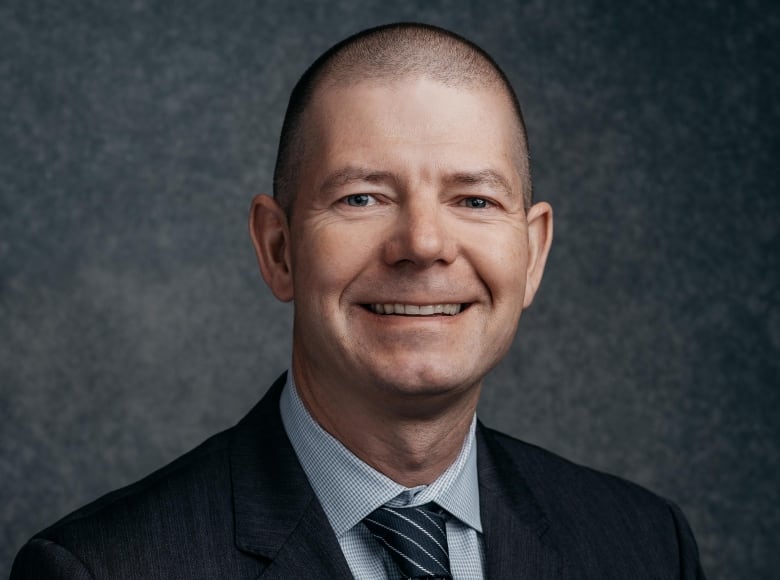N.W.T. issued dozens of emergency licences to Alberta physicians in first stage of pandemic response
The emergency licences allowed physicians to practice within days, says N.W.T. deputy medical director

The Northwest Territories granted dozens of emergency licences to Alberta physicians and locums to provide virtual care during the initial stages of the pandemic, CBC News has learned.
Numbers from N.W.T. Health and Social Services show the territory issued 52 licences to physicians and hired 38 virtual locums since March 23.
The licences were issued either to bring in specialized medical staff in case of an emergency, or to allow Alberta medical professionals who already work with N.W.T. patients to continue offering virtual appointments in the territory.
Dr. Katherine Kessler, the territory's deputy medical director, described the process of getting an N.W.T. medical licence as "onerous," but the emergency licenses allowed physicians to practice "in a couple of days."

The quick turnaround was important, Kessler said, because the N.W.T. could become more dependent on Alberta physicians if any of their medical staff contracted COVID-19.
"The N.W.T. has always relied on locum healthcare staff … because we don't have enough people locally," Kessler told CBC.
Here is the breakdown of the physicians, by specialty, that received emergency licences this year:
-
23 pediatrics (children)
-
9 internal medicine (treatment of internal diseases)
-
6 family physician
-
2 psychiatry (mental, emotional and behavioural disorders)
-
2 neurology (nervous system)
-
2 otolaryngology (ear, nose, throat)
-
2 physical Medicine and Rehabilitation
-
2 pediatrics and respirology
-
1 cardiac surgery (heart)
-
1 orthopedic surgery (muscles and bones)
-
1 medical genetics (hereditary disorders)
-
1 pediatrics and infectious diseases
Until this week, the licences were required for anyone in Alberta practicing virtual care in the territory.
On Wednesday, the territory posted a letter entitled "Alberta doctors for N.W.T. COVID-19 response" on their website.
It says Alberta physicians no longer need N.W.T. emergency licences to practice virtual care if they are in good standing with the College of Physicians and Surgeons of Alberta, the body overseeing licencing in that province, and have a referral to practice in the territory.
"We removed this barrier to care … between the N.W.T. patient and the Alberta physician," David Maguire, a spokesperson for the N.W.T.'s health department, told CBC.
N.W.T. sent 400 letters to Alberta doctors in March
Before the pandemic, Kessler said she doesn't think virtual care was on people's minds.
Alberta physicians used their normal standard of care, she continued, by asking patients to come see them in person — so they never needed a licence to practice in the N.W.T.
The N.W.T. government sent 400 letters to Alberta physicians when the pandemic first started, Maguire said, to encourage them to apply for these new emergency licences.
That's so N.W.T. patients could continue to "rely heavily on the expertise and support" of colleagues in Alberta while avoiding as many in-person appointments as possible, the letter says.
"We ask that any specialists with upcoming appointments with N.W.T. patients consider replacing the in-person visit with a virtual care appointment either via phone or video," the letter reads.
Virtual care not new
Virtual care isn't new to the territory. Maguire noted in a statement that 4,461 telemedicine appointments were offered to N.W.T. patients in 2019.
Essentially anything that doesn't require a physical exam is a candidate for virtual care.- Dr. Katherine Kessler, N.W.T's deputy territorial medical director
What's different now, Maguire said, is the way appointments are being offered.
The territory adopted new technologies, like Zoom and FaceTime, to provide more options for how and when patients can access care.
Some types of appointments, like post-op checkups and follow-ups for patients with chronic issues, are possible through virtual care, Kessler said.
"The range is quite wide," Kessler said. "Essentially anything that doesn't require a physical exam is a candidate ... for virtual care."
Kessler said the department doesn't know how many in-person appointments have made the switch to online since March.
'It's really important for us to help out in other places'
Dr. Paul Boucher, the president of the Alberta Medical Association, said Alberta has developed strong "linkages" with the North over the years.
Edmonton clinics get N.W.T. patient referrals, Alberta locum doctors travel up to the North quite frequently and the licensing colleges are closely linked, he continued.

That's why Boucher said Alberta physicians should be willing to help out when they can.
"I think its natural to be a bit protective in times of crisis but it's really important for us to ... help out in other places," Boucher told CBC.
"I think the North, it being resource-limited, is always at risk."
Boucher said he doesn't think there is a strain on Alberta's healthcare system as of now, so there are enough resources to go around.
'Paradigm shift' for N.W.T. providers
The need to restrict movement during the pandemic has caused a "paradigm shift" in how medical professionals offer care to their patients, something Kessler believes should continue to be supported after the pandemic is over.
"People are recognizing the value of virtual care and wanting to provide that more," Kessler said. "I think we need to recognize that travel outside of the territory is often difficult and inconvenient for people."
Part of that support would include recognizing Alberta medical licences as enough to practice in the North.
The new licensing exemptions will stay in place until further notice.